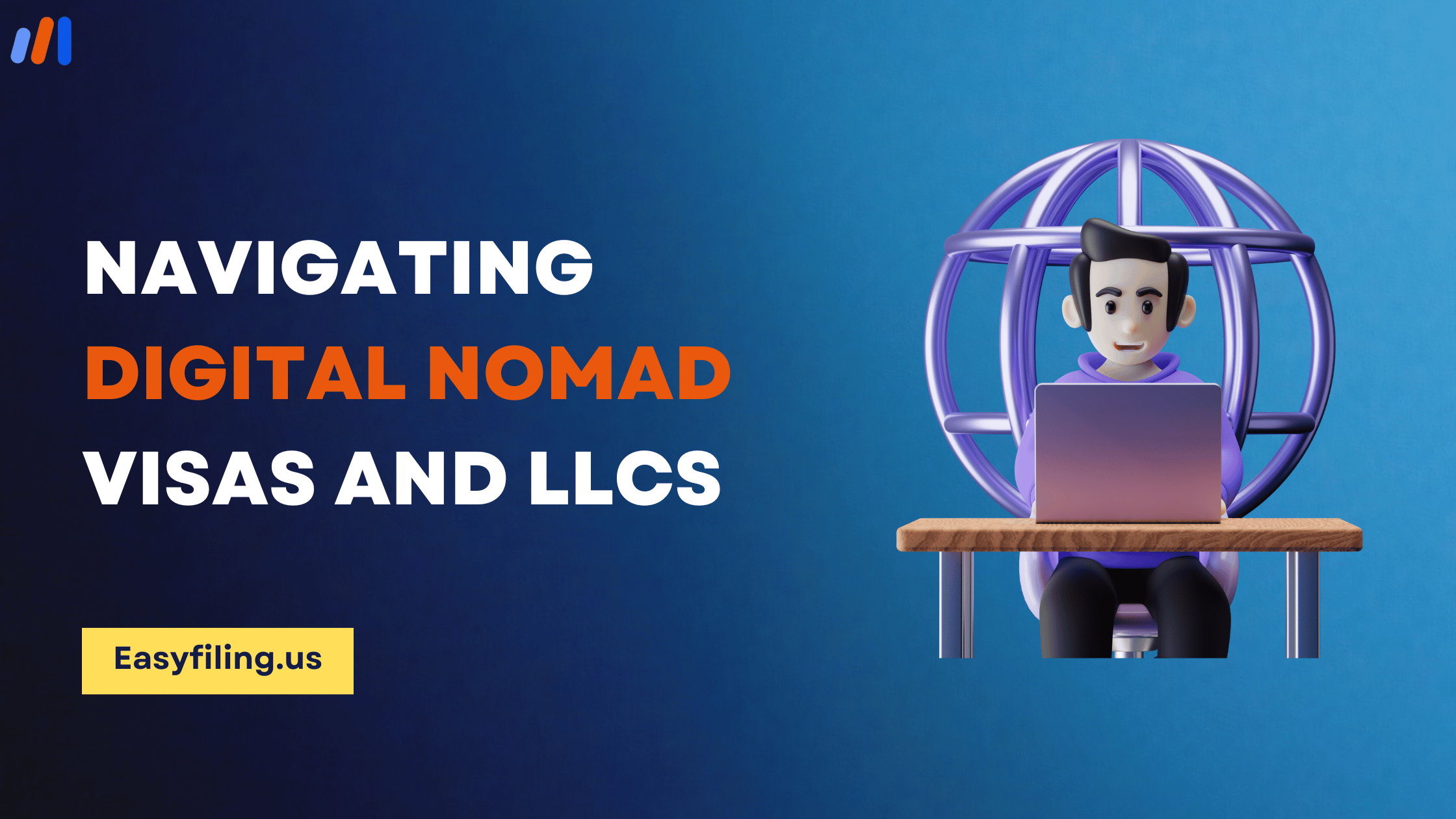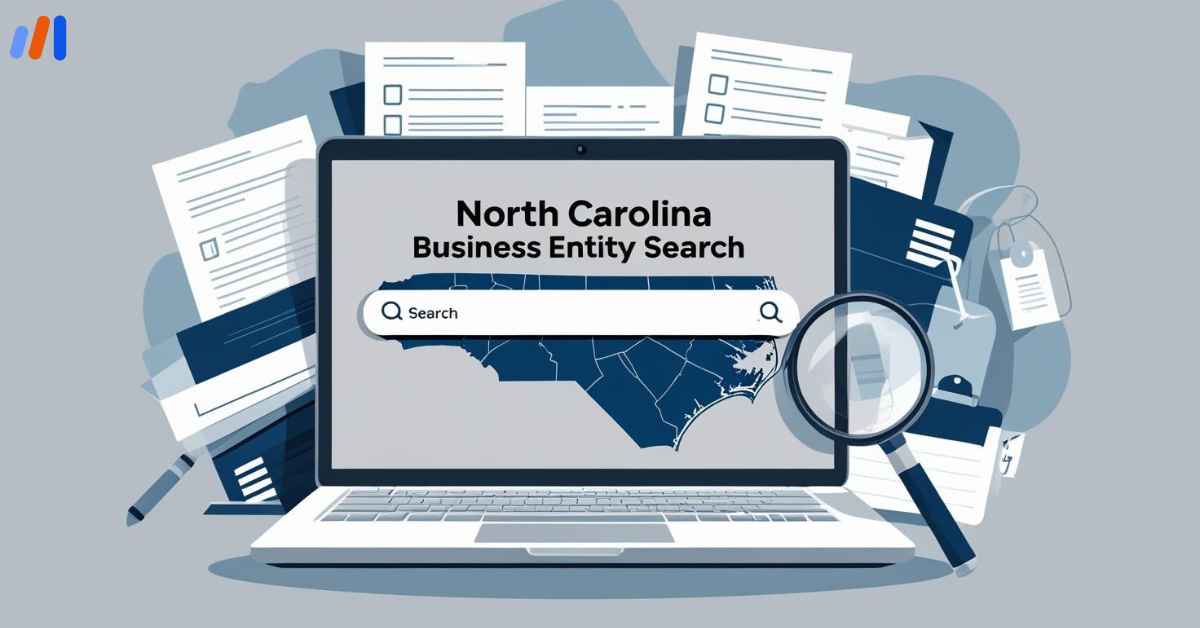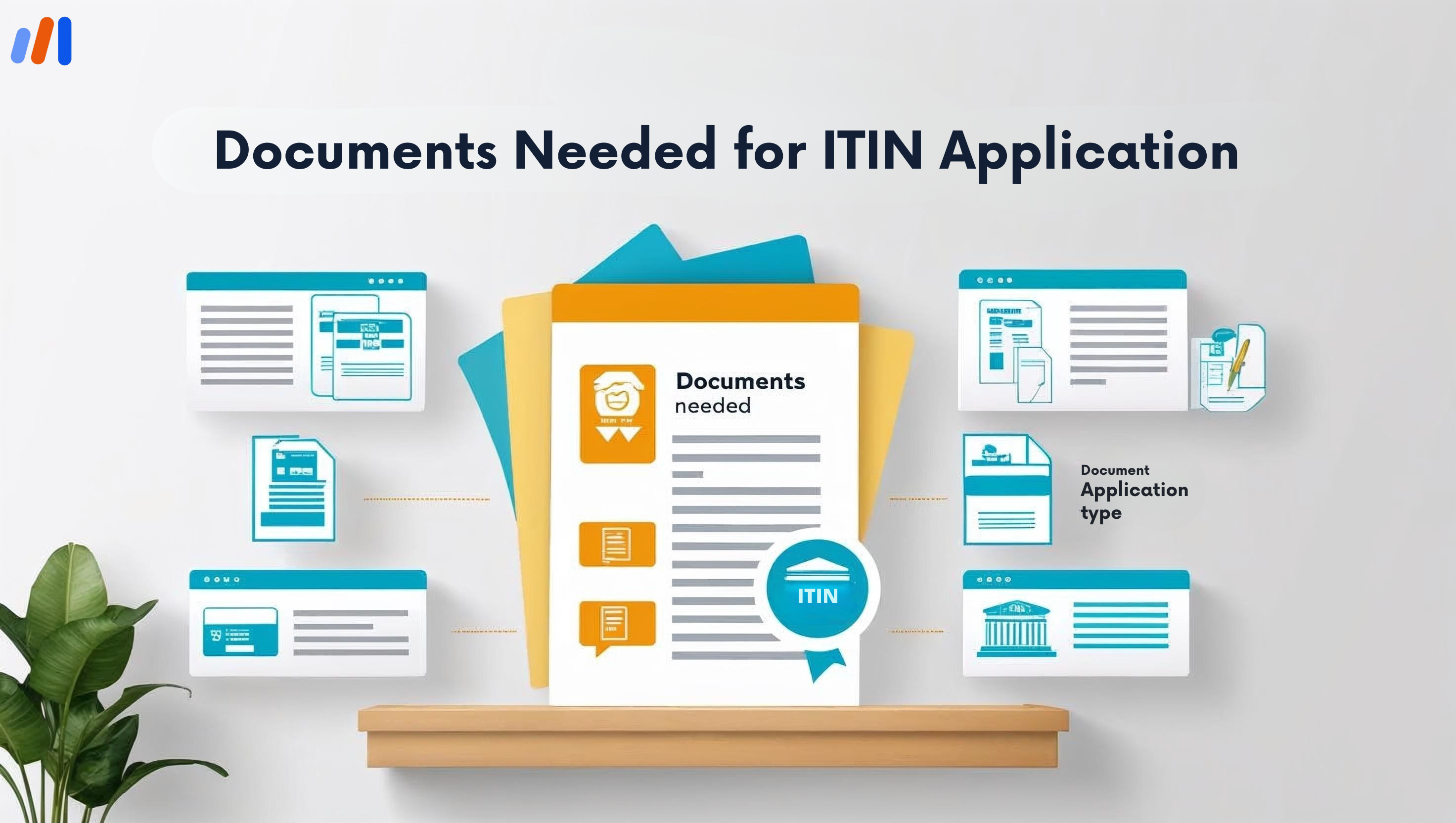In an age marked by changes in work culture, there are more and more professionals who choose to become digital nomads to go on business backed by the organization to new territories.
Furthermore, as time goes by and the number of remote employees increases, these employees need to look for visa alternatives and also know how these visa options affect the business, and its operations particularly business taxation and legal aspects.
Introduction to Digital Nomad Visas
As digital nomads increasingly move to foreign nations in search of better living standards, they are also likely to try out these new national digital welfare programs. The purpose of these types of visas is to provide these clients with the precise service that they need which is for them to be able to live in a country other than their own for a long time but get paid for work that is done online.
With such knowledge and skill sets, remote workers can take advantage of the aforementioned IT business development opportunity as well as improve their finances and standard of living post moving to these countries.
Advantages of Digital Nomad Visas
One of the main attractions of digital nomad visas is the tax breaks they provide to remote workers looking to travel around and work at the same time. As more people embrace the idea of working remotely, several nations are welcoming foreign employees with open arms and with lower taxes or even doing away with them all which will prove to be very beneficial to qualified clients.
Their advantages include :
- Some countries, for instance, do not charge or permit digital nomads to pay taxes for several years offering a buffer as one goes sightseeing around since there will be no large tax bills to settle.
- Lower tax laws when compared to the legal tax rates in their countries of residence most of the time persuade people to shift abroad.
- Chance for improving income standing whilst living in a foreign territory with foreign cultures and ways of living.
- Pushing up income as well as minimizing costs, which is a good practice for standing finances would leave quite some extra funds for use on adventures and travel.
- These measures of providing tax breaks make the digital nomad visa a happy delight to professionals who wish to broaden their scopes and within the course of that not deteriorate their financial position.
LLC Considerations for American Citizens

American expatriates have a unique problem regarding taxation since they have to fulfill the obligation of paying taxes on their worldwide income. In this case, this should be strategically considered alongside other factors of the business to reduce the tax burdens.
Limiting Liability of an Owner
Limited Liability Company: Setting up an LLC in America is unlikely to afford overseas citizens much tax advantage as such. It does however offer protection legally and in terms of business organization.
S Corporations: For those who are business-oriented, it may be beneficial to incorporate an S Corporation. In this structure, they can make payments to themselves to an appropriate level of salary, which level will have some tax consequences in the country they are residing.
Foreign Earned Income Exclusion: A U.S. citizen can exclude $120,000 foreign earned income from U.S. taxation. However, this does not mean that one will not be required to pay self-employment taxes. It has residency requirement features such as having to take some tests, be a bona fide resident, or a physical presence test.
LLC Advantages For Non-Residents
While Non-Resident allow for engagement in business in the United States through LLCs, there are benefits of legal and tax compliance, which are appealing to those who want to do business in U.S. markets.
Key Advantages
Legal Protection: An LLC allows foreign businesspeople who would like to conduct business with the U.S. financial system a great degree of legal protection and additional operational flexibility as their personal belongings are at risk of business litigation.
Tax Benefits: Usually, non-U.S. residents do not have to bear U.S. income tax on any income earned outside of the borders of the U.S. This makes it possible for foreign entrepreneurs to conduct business activity without incurring added tax costs.
Access to Services: Possessing an LLC can ease the attainment of U.S. banking services and upgrade relationships with clients which enhance business credibility and ease of entering the competitive market in the U.S.
Types of LLCs for Digital Nomads
Forming a Limited Liability Company (LLC) as a digital nomad can present flexibility, legal protection, and tax efficiencies as well. Below is the categorization of LLCs that may apply to your lifestyle and business activities.
1. Single-Member LLC
A Single-Member LLC is the most basic and helps and is mostly used by small entrepreneurs including digital nomads. It comes with personal liability protection, which means that your personal property will generally be free from any business debts. This form of company is also not very cumbersome as it compares with a corporation in terms of formalities and management.
Pros:
- Straightforward compliance
- Pass-through taxation (profits and losses are treated as the owner’s private and ordinary income)
- spiritedness about clients abounds more than operating as a coward full telecom Customer Relations Department alone
Cons:
- Difficulties in fundraising (Since you are the only owner)
- May be liable to self-employment tax
2. Multi-Member LLC
When running your business alongside one or more partners, in reality, a Multi-Member LLC would work for you. This ownership structure offers liability to each member of the company and earnings may be distributed by the provisions of the operating agreement.
Pros:
- Shared risk and coordination of specialized risks are complimented by carrying the business.
- Member protection against the legal action of any legal liability.
- The company enjoys the flexibility of how it can be structured and operated.
Cons:
- The requirements of filing tax returns will be more and there will be tax return bursts
- Internal strife among members can create potential opportunities for these factors if run poorly.
3. Series LLC
A Series LLC is a type of limited liability company that is only available in a few states but proves useful if you have numerous activities or projects. Each series distinguishes operates independently and has separate unique funds and debts, which limits the overall risk.
Pros:
- Protection from creditors or lawsuits for each separate series
- Good for operating several unrelated businesses under a single umbrella.
Cons:
- Registration and ongoing compliance with applicable laws are cumbersome.
- Not all states will allow the formation of this structure.
4. Professional LLC (PLLC)
Regulated professionals practicing as rather solicitors or marketers may be providing specialized services and in this case, distribution of, bad risk management, and controlling PLLC may be applicable or useful depending on the market standard and state regulations.
Pros:
- Provides liability protection while allowing professionals to operate in their licensed field
- Can enhance client trust and credibility
Cons:
- Limited to specific professions
- Additional licensing requirements
Steps for Setting Up an LLC
Step 1: Determine Your Unique Business Name
Look Up Your Name: Conduct a business name search through your state’s business registry to confirm that you are not taking a name that is already taken.
Original and Legally Satisfactory: The LLC name you select ought to be original and must state the words “Limited Liability Company” or one of its abbreviations, Ltd Liability Co.
Domain Name: Try to think about whether this domain name is appropriate for your business in case it were to go online.
Step 2: Choose A Registered Agent
Type Of Agent: The registered agent shall be the one who will accept the legal documents that will be needed for your LLC.
Who: This may be a person or an entity qualified to do business within your state and has a registered office in the said state.
Step 3: Draft And Submit Articles Of Organization
Prepare Documents: This is the document that puts your LLC in existence as per the government laws.
Include Essential Information: Business name, address, registered agent details, and management structure.
State Fee: Submit a filing fee according to the state’s requirements.
Step 4: Prepare an Operating Agreement
Determine Internal Structure: An operating agreement describes the ownership and management of a limited liability company and how it operates.
Not Required in Some Cases: Although it is not on most state requirements, it is useful and helpful in avoiding confusion and addressing any disagreements.
Step 5: See the IRS Application for an EIN
Employer Identification Number from Internal Revenue Services: This is essential because it will enable you to pay taxes, operate a bank account, and employ workers.
Make the Request Over the Internet: This exercise is simple and there is no charge for it as it is free on the IRS website and can be accessed via the Internet.
Step 6: Open a Separate Business Account
Business Plan: Maintain your personal liability protection by ensuring that personal transactions do not mingle with business ones.
Bank Requirements: The documentation you will present is your EIN, articles of organization, and likely your operating agreement.
Step 7: Observe Both State and Federal Laws
Business Licenses and Permits: You need to understand that not all businesses will operate without legal requirements that are of permits and licenses considering the field of work and geographical factors.
Know your Tax Obligations: You should learn the different taxes that are imposed on you by the federal, state, and town governments such as sales tax and state tax.
Step 8: Continue operation of Your LLC
Annual Reports: In most cases, LLCs have to use annual or yearly reports for good standing, active states who may request such endeavors from their entities.
Record Keeping: Accurate finance documents and minutes from business meetings must be kept to substantiate the operations of an entity.
How Easyfiling can help Digital Nomads to form LLC?
Easyfiling can help form LLCs for digital nomads in a stress-free and efficient manner using an organized online system. Here’s how.
Online Filing: All kinds of paperwork filing are practically done online. There are no paper forms nor having to physically go to the ministry to submit documents. Easier for traveling digital nomads who do not have a permanent address.
State-Specific Guidance: Each state has its requirements and Easyfiling provides help and outlines corresponding to the state you wish to register your company in. You are making sure that the LLC you are forming is legitimate and that all the standards have been met.
Registered Agent Services: A lot of the Easyfiling platforms also offer Registered Agent services which is one of the most basic requirements for an LLC formation. A registered agent is an individual or an organization that has been authorized to receive service of process on behalf of the LLC. This can be very helpful to digital nomads who do not stay most of the time at the registered state address of incorporation.
Additional Services: Easyfiling likewise frequently provides ancillary services like operating agreements, EIN applications, or filings of annual reports. These services may facilitate the cumbersome administrative aspects that come with the LLC.
Affordable Pricing: Easyfiling normally engages in rational pricing concerning its LLC formation service, thus being ideal for digital nomads.
To sum it up, Easyfiling can ease the process of forming an LLC for digital nomads by offering simple-to-use online filing, relevant information, additional services, and reasonable pricing. This enables digital nomads to concentrate on matters of business ventures and in the will extend as LLC owners to be sure all the legal paperwork is taken care of.
Conclusion
It is important to comprehend the concepts surrounding the digital nomad visa and LLCs because these concepts determine how efficiently and easily one can live and earn while working remotely anywhere in the world. It is apparent that remotely working individuals do not seek to limit their way of living and to become easily exploited and thus having a clear understanding of these opportunities will greatly help digital nomads.
Frequently Asked Questions (FAQs)
What are the main differences between a Digital Nomad Visa and a tourist visa?
Digital Nomad Visas on the other hand allow individuals to stay longer in the foreign country (ranging from 6 months to a few years permanently residing) while working remotely. On the other hand, tourist visas are short-lived and impose restrictions in terms of employment Moreover, there is disciplinary action for non-complaints such as not engaging with locals for employment.
Which country’s citizen can apply for a Digital Nomad Visa?
These days several countries have this kind of visa including Portugal, Estonia, Croatia, Barbados, and the Caribbean Islands. Research needs to be done, however, given the country in question requires contradictions.
What are the basic conditions for applying for a Digital Nomad Visa?
Many factors differ from one country to another but some of the most common conditions include holding an employer or business which is remote, as well as stable income, health coverage, and sometimes extra good behavior.
Can I take family members to a Digital Nomad Visa application?
Most of the countries offer family reunification to follow the primary representative of the visa, however, particular country laws may influence it. Bear in mind, that for each family member, more paperwork may need to be prepared.
File Your LLC Today
25$ off with a coupon
Lock in EasyFiling's transparent rates and get lifetime compliance support at no extra cost.
Get Started Now










